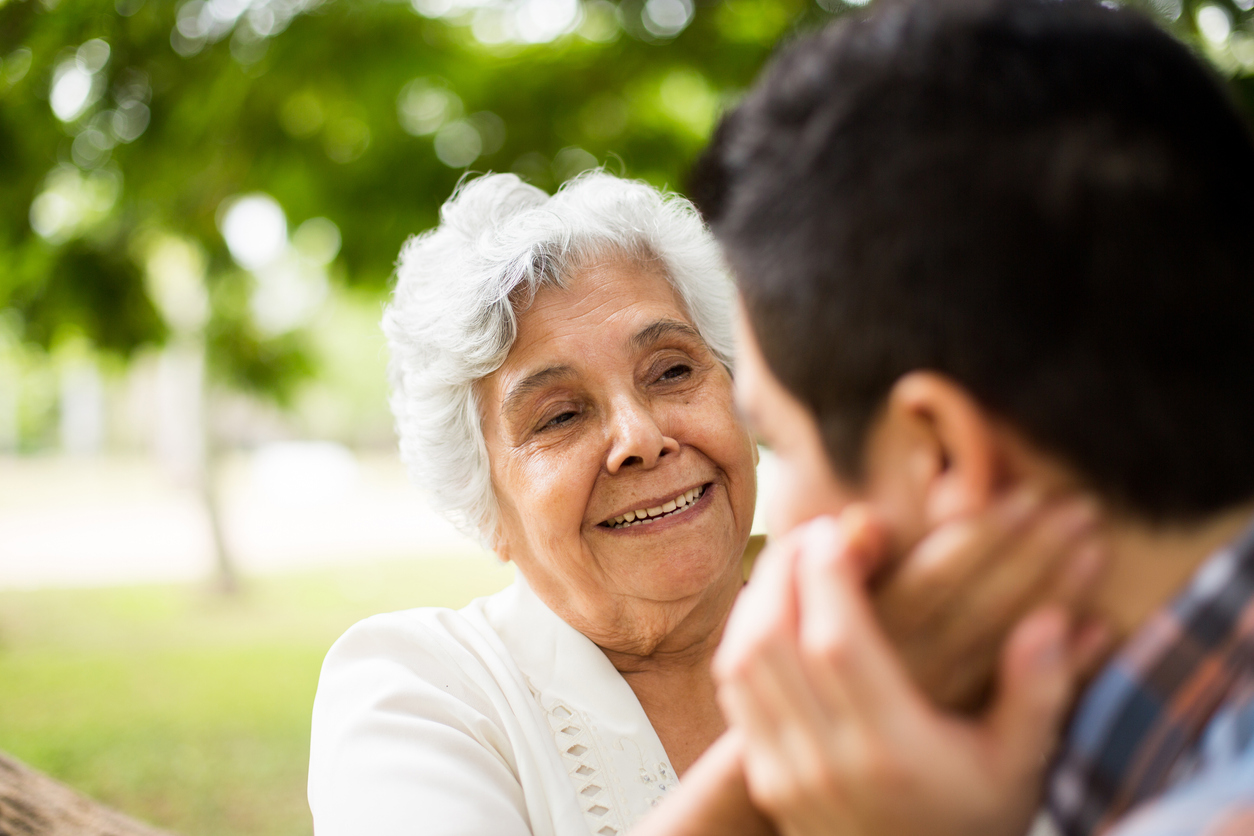When your loved one is nearing the end of life, you may worry about finding the right thing to do or say. In truth, it’s simpler than that: Just be present and open, in whatever ways you can. Honor what feels meaningful. Be patient with your loved one, and with yourself.
If you need some help, here are tips.
If your loved one is able to communicate, let them guide the conversation.
Create space for your loved one to share whatever comes up. If they’re able to tell you what they need, encourage it. If they want to talk about unresolved issues, be open to that. Let them know it’s okay to feel however they’re feeling. Try to listen without judgement.
“Let them guide the conversation,” says Denis Lynch, a chaplain for HopeHealth. “Accept them. Respect them as they are, and as they have been. Just let them be who they are.”
If your loved one is having trouble communicating, be patient.

If your loved one is struggling with speech, help them take all the time they need. Be patient as they express themselves as best they can.
“Listen hard,” says Lynch. “They’re often trying to communicate in their own language. Where are they in their mind, in their heart?” Listen for what they might be trying to say, rather than focusing on their exact words.
Listen for the language of goodbye.
In their final days, many people talk about going home, or seeing parents or other loved ones who predeceased them. They’re preparing themselves and their loved ones for what’s coming, says Lynch.
“Encourage them to talk about it without correcting them,” he says. “Just look for the deeper meaning.”
Even if your loved one can’t respond, try talking to them.
Hearing is often thought to be the last sense to go. Even if your loved one is unresponsive, your voice may give them comfort – and talking to them may bring you comfort too.
So greet your loved one when you enter the room. Talk about the weather. If they like prayer, say prayers. Tell stories. Share favorite memories. Read to them.
“Remember that you’re helping by just being there. There is nothing you have to do.”
Give them permission to let go.
From holding their hand to playing their favorite music, there are many ways to give your loved one a sense of peace in their final days. One may be to let them know that it’s okay to go, either by saying so directly or finding other ways to reassure them.
If you’re not comfortable talking about your loved one’s death, “you can come at it in other ways,” says Lynch. “You can say, ‘Mom, you know we’re going to be okay, right?’”
Speak words of comfort.

“Tell your loved one what they meant to you,” says Natalia Brum, a long-time HopeHealth volunteer who sits vigil with patients at the end of life. “Reassure them that they are going to be fine. Reassure them that their family is going to be fine. Thank them.”
These are just suggestions, she adds. There’s no script – just speak from the heart.
Just keep them company.
“You don’t always need to talk,” adds Brum. You can also watch TV, read, work or simply sit in silence.
When we feel helpless, we tend to want to do something. But there is great value, and comfort, in simply being present. “Remember that you’re helping by just being there,” says Lynch. “There is nothing you have to do.”
Be kind to yourself.
Everyone experiences loss and grief differently. If you’re having a hard time being physically present for your loved one in their final days, that’s okay. You can honor them without being in the same room. You can be with them in your thoughts or prayers. There is no single “right” way to approach this time.
“What you’re doing is the right thing,” says Lynch, “if you’re doing it out of love.”
Ask for help.
“Take care of yourself,” says Brum. “Be aware of how you’re feeling, and if you’re struggling, ask for help.”
HopeHealth volunteers like Brum are available to sit with your loved one and provide other meaningful services. Chaplains like Lynch are available for spiritual counsel. Wherever your loved one is spending their final days, we’re here to support them – and you.

